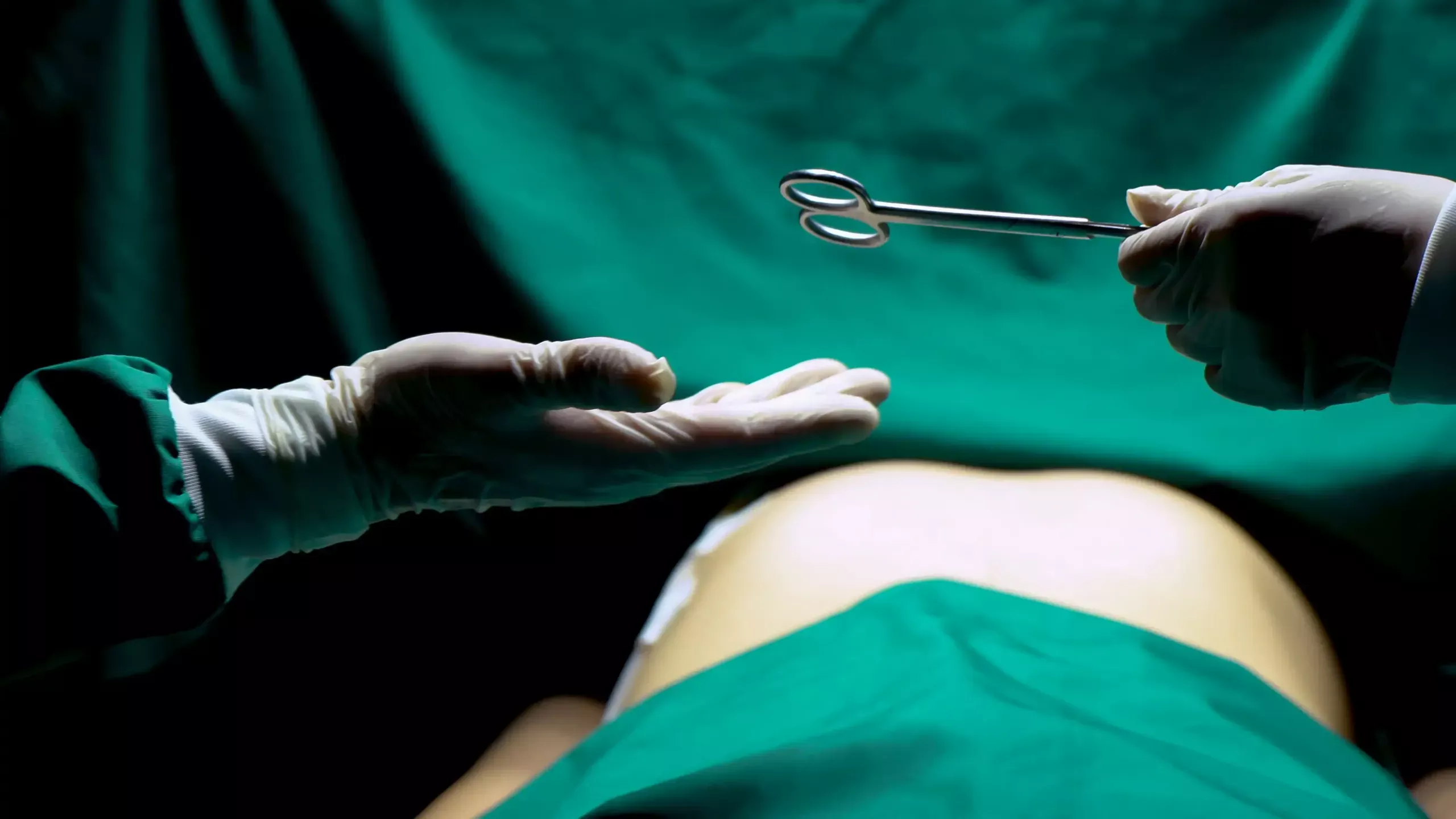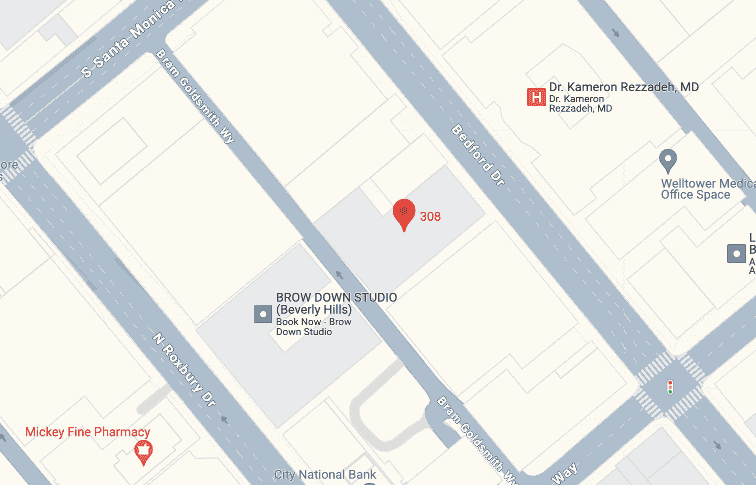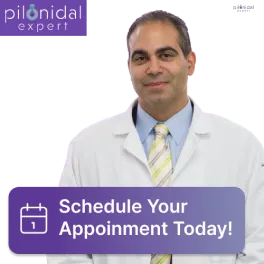Pilonidal cyst excision surgery is a common and necessary procedure aimed at alleviating the discomfort and pain associated with a pilonidal cyst. While the surgery itself is a crucial step towards recovery, proper post-operative care is equally essential.
This article will guide you through the recovery process after undergoing pilonidal sinus surgery, offering insights into the procedure and providing tips to ensure a smooth and comfortable recovery.
What is the Procedure to Remove a Pilonidal Cyst?
Depending on the severity of the condition, different techniques may be used for pilonidal cyst removal, which is usually done as an outpatient operation. Among the most popular surgical techniques are:
Incision and Drainage:
- In less serious situations, a surgeon could cut a small opening to remove any hair or debris causing the infection and to drain the cyst.
- Local anesthetic is frequently used for this operation, and patients can typically go home the same day.
Limb Flap Closure:
- In more complicated circumstances, a surgeon might choose to use a Limberg flap closure, in which the wound is covered by neighboring tissue after the sinus is removed.
- General anesthesia might be necessary for this treatment, and recovery time might be longer.
Bascom’s Cleft Lift Procedure:
- To stop recurrences in the future, this procedure entails excising the sinus and rebuilding the affected area.
- Because the Cleft Lift operation offers shorter recovery periods and lower recurrence rates, it has become more and more popular.
Recovery After Pilonidal Sinus Surgery:
- Post-operative instructions is essential to a full recovery following pilonidal cyst excision surgery. Here are some broad pointers to assist you in navigating the healing process:
Care for the Incision Site:
- Maintain a dry and clean surgery site.
- Pay attention to the wound care, dressing changes, and showering restrictions that your surgeon has instructed you to follow.
Pain Control:
- Adhere to the recommended dosage for painkillers.
- To reduce pain, don’t overdo it and abide by activity limitations.
Hygiene is Crucial:
- To avoid infection, practice proper personal hygiene.
- Avoid exerting force or creating friction when cleaning the area surrounding the incision.
Monitor for Signs of Infection:
- Watch for increasing redness, swelling, or discharge, which are indicators of infection.
- If you have any worrying symptoms, get in touch with your doctor.
Follow-Up Appointments:
- Keep all of your follow-up appointments with your surgeon booked.
- During these appointments, talk about any worries or strange symptoms.
Resuming Activities:
- As directed by your healthcare expert, gradually resume your regular activities.
- Steer clear of extended periods of sitting and, for added comfort, think about using a cushion or doughnut pillow.
Healthy Lifestyle Choices:
- Consume a healthy, balanced diet to aid with healing.
- Give up smoking, as it can impede the recuperation process.
How Severe is Pilonidal Sinus Surgery?
Despite being regarded as a normal outpatient treatment, pileonidal sinus surgery might vary in severity based on the particular situation and the surgical technique selected. Usually, the size and intricacy of the cyst, the existence of an infection, and the surgical technique used will dictate how severe the surgery will be. The various factors that influence the degree of pilonidal sinus surgery severity are examined here:
Cyst Complexity and Size:
The extent of the surgery is mostly determined by the size and complexity of the pilonidal cyst. Less invasive methods, like straightforward incision and drainage, may be used to treat smaller cysts. Surgery may become more complicated if a cyst is larger or more complicated and calls for more involved operations.
Infection Status:
The surgical procedure may need to be more aggressive if the pilonidal cyst is infected. The process may become more difficult due to infections, requiring extra measures to treat pus accumulation, inflammation, and the possibility of the infection spreading to neighboring tissues.
Surgical Technique:
The procedure’s degree of severity is determined by the surgical technique selected. The Limb Flap Closure technique, Bascom’s Cleft Lift Procedure, and incision and drainage are common methods. While more involved treatments, such flap closures, can result in a more involved and possibly longer recovery period, less intrusive operations might have a softer recovery.
Anesthesia Type:
The kind of anesthesia used also influences how serious people think the procedure is. For simpler operations, local anesthetic is frequently enough to keep patients awake and numb during the process. A longer recovery period and possible adverse effects may result from the need for general anesthesia during more involved surgery.
Recurrence Risk:
The chance of recurrence may have an impact on how severe pilonidal sinus surgery is. Some surgeries are designed to reduce the likelihood of the cyst coming back, such as the Bascom’s Cleft Lift. Though a more complex surgery would be required, a more preventive strategy might lessen the severity of future incidents.
Recovery Challenges:
The postoperative phase reflects the degree of surgical severity, with more involved treatments frequently necessitating a longer recuperation period. To promote optimal healing, patients may need to follow more stringent activity limits, wound care regimens, and follow-up sessions.
What Type of Doctor is Certified to Remove a Pilonidal Cyst?
Consulting a physician with specific knowledge of pilonidal cysts can be very helpful in managing this illness. To identify, treat, and surgically remove pilonidal cysts, a medical specialist is designated as a Pilonidal Cyst Specialist. For treating this illness, these experts are frequently the best option for the following reasons:
Expertise in Pilonidal Cysts:
Doctors that specialize in the study and management of pilonidal illness are known as pilonidal cyst specialists. Because of their specialist knowledge, the illness may be understood more thoroughly, which leads to accurate diagnosis and customized treatment approaches.
Advanced Medical Interventions:
The different surgical methods available for cyst removal, from less invasive treatments to more sophisticated operations, are well-known among Pilonidal Cyst Specialists. They can guarantee that patients receive the best possible care because of their expertise with cutting-edge treatment choices.
Lower Rates of Recurrence:
Surgical techniques designed to reduce the chance of cyst recurrence are frequently used by pilonidal cyst specialists. To give patients a more permanent answer, experts in the field often undertake procedures like the Bascom’s Cleft Lift, which has a lower recurrence rate.
Comprehensive Care Approach:
Specialists in pilonidal cysts are aware of the condition’s complexity and its effects on a patient’s quality of life. They take a holistic approach to treatment, taking into account things like wound healing, infection control, and long-term results.
Patient Assistance and Education:
Pilonidal cyst specialists take the time to inform patients about their problem and the alternatives for treatment. This guarantees that people take an active role in choosing their healthcare providers and are knowledgeable about the recuperation process.
Cooperation with Additional Experts:
Pilonidal Cyst Specialists can work with other medical experts to provide patients with comprehensive care that is customized to meet their specific needs in situations where extra medical expertise is needed.
Discover Excellence in Pilonidal Cyst Care with Pilonidal Experts!
Are you seeking a dedicated and experienced team for pilonidal cyst excision surgery? Look no further than Pilonidal Experts – your trusted partners in specialized care. Our commitment to excellence ensures that you receive the highest standard of treatment for pilonidal cysts.
Contact Pilonidal Experts today to schedule a consultation and embark on the path to recovery. Don’t let a pilonidal cyst disrupt your life – trust Pilonidal Experts for exceptional care and lasting results!








